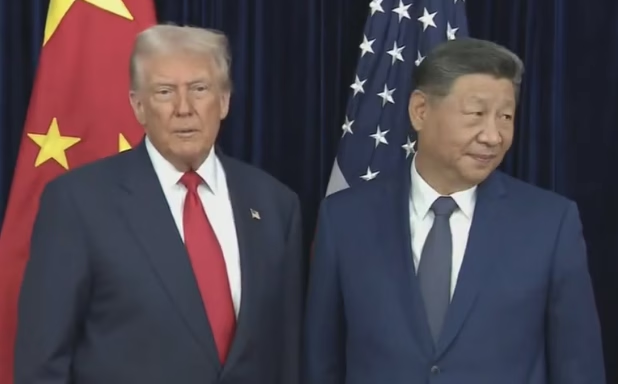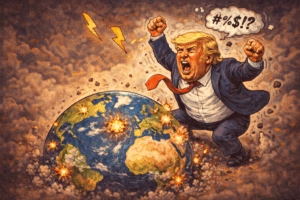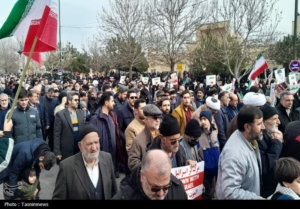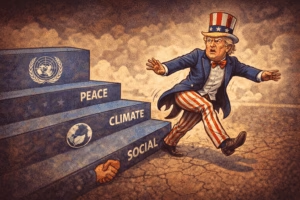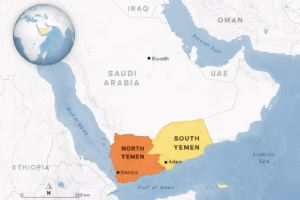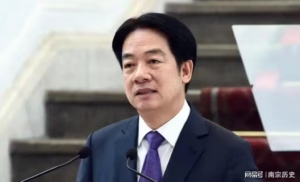China’s President Xi Jinping met with United States President Donald Trump in Busan, South Korea, on Thursday, in a high-profile dialogue that reflected renewed efforts to stabilise one of the world’s most pivotal bilateral relationships. The meeting, covered by the Xinhua News Agency, drew global attention as the two leaders discussed cooperation, economic recovery, and the future of global governance.
Renewing Trust Between Beijing And Washington
President Xi expressed a readiness to continue strengthening cooperation with Washington and to build a stable foundation for mutual progress. According to Xinhua, he emphasised his intention to “create a sound atmosphere for the development of both countries.”
During the meeting, Xi highlighted that under their joint leadership, relations between China and the United States had remained broadly stable despite external pressures. He reaffirmed his belief that the world’s two largest economies must continue to engage constructively.
“China and the US should be partners and friends. That is what history has taught us and what reality needs,”
he said.
Acknowledging that differences were natural given the nations’ unique conditions, Xi added that occasional friction between major powers was to be expected. He encouraged both governments to maintain composure and strategic patience when navigating challenges.
“You and I are at the helm of China-US relations,”
Xi remarked.
“In the face of winds, waves and challenges, we should stay the right course, navigate through the complex landscape, and ensure the steady sailing forward of the giant ship of China-US relations.”
Shared Global Responsibilities And Economic Momentum
Xi underlined that in a world facing increasing uncertainty, the two nations bore a shared responsibility to contribute to stability and progress.
“The world today is confronted with many tough problems. China and the US can jointly shoulder our responsibility as major countries, and work together to accomplish more great and concrete things for the good of our two countries and the whole world,”
he stated.
He further noted that China would host the APEC summit in 2026, while the United States would convene the G20 Summit next year. Xi suggested both sides support each other in ensuring that these gatherings contribute to global economic growth and improved governance.
The Chinese leader also pointed to encouraging domestic progress. China’s economy grew by 5.2 percent during the first three quarters of the year, with imports and exports rising by 4 percent despite global challenges. Xi described this resilience with optimism, calling it a testament to the nation’s enduring strength.
“The Chinese economy is like a vast ocean, big, resilient and promising,”
he said.
Progress In Trade Talks And Tariff Adjustments
Following the Busan meeting, China’s Ministry of Commerce announced several tangible results from recent bilateral economic discussions held in Kuala Lumpur. The United States agreed to remove the 10-percent “fentanyl tariffs” and extend the suspension of the 24-percent reciprocal tariffs on Chinese goods, including those from Hong Kong and Macao, for an additional year.
China, in turn, confirmed that it would make corresponding policy adjustments. The ministry spokesperson noted that both countries had committed to continue extending certain tariff exclusions as part of broader cooperation efforts.
Professor Diao Daming from Renmin University’s School of International Studies observed that such policy realignments would have a constructive impact. He stated that the latest negotiations had “laid a constructive foundation for future stability of relations,” underscoring that pragmatic diplomacy benefits not only the two countries but also the global economy.
A Cordial Exchange Between Leaders
The atmosphere of the meeting appeared warm and respectful. CNN reported that as Trump sat across from Xi, he described the encounter as a moment of personal respect and long-standing acquaintance.
“It’s a great honor to be with a friend of mine, really, for a long time now,”
Trump said.
He went on to describe Xi as both “distinguished and respected” and a
“great leader of a great country.”
Analysts such as Dylan Loh of Singapore’s Nanyang Technological University described the meeting as “significant,” noting that it addressed both long-standing and emerging issues in the trade relationship between the two nations.
Diao further explained that Trump’s public admiration for Xi reflected a recognition of China’s leadership achievements and its global influence, adding that it symbolised the potential for deeper diplomatic understanding.
Dialogue Over Confrontation
Throughout the discussions, Xi emphasised the importance of engagement over hostility. He reiterated that China’s development path was driven by self-improvement and global cooperation, not rivalry.
“Over the past seven decades and more, we have been working from generation to generation on the same blueprint to make it a reality. We have no intention to challenge or supplant anyone. Our focus has always been on managing China’s own affairs well, improving ourselves, and sharing development opportunities with all countries across the world,”
Xi affirmed.
He called on both nations’ economic teams to turn recent understandings into actionable progress that would inspire confidence domestically and internationally.
The two presidents agreed to maintain consistent dialogue and to promote cooperation in areas such as energy, trade, and cultural exchange. Trump also expressed his intention to visit China early next year and extended an invitation for Xi to visit the United States, signalling an ongoing commitment to open communication.
As both leaders left Busan, their words echoed a cautious optimism that dialogue, not confrontation, remains the best route forward. The outcomes of their discussions—both symbolic and practical—may set the tone for a new phase of pragmatic engagement between the world’s two largest economies.

